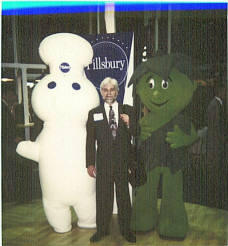We know, from 'Bury My Heart At Wounded Knee: An Indian History of the American West', that the Native Americans labeled General George Armstrong Custer "Hard Backside", for his, seemingly, comfort of sitting atop a horse for long periods of time.
But is not to say they meant that endearingly.
Today, in Salon, there is a fascinating review, by Tom Carson, of Barnes & Noble Review, - "George Custer: An American embarrassment ...An award-winning author exposes gruesome details about Little Bighorn and revisits the story of its much-hated hero " - on a new book by Nathaniel Philbrick.
In fact Custer was anything but endearing to the Indians;"More than anything else, he wanted to be remembered." That's how Nathaniel ("Mayflower") Philbrick sizes up George Armstrong Custer toward the end of "The Last Stand: Custer, Sitting Bull and the Battle of the Little Bighorn,"and no one will dispute that America's ultimate glory hound got his wish. Too bad the victorious Lakota and Cheyenne weren't feeling respectful after wiping out his command in what's now Montana on June 25, 1876. They not only punctured the dead Custer's eardrums because he "wouldn't listen," but -- in a detail long suppressed by decorum -- jammed an arrow up the corpse's penis.
Yikes!
In short, Philbrick lays out that the Custer myth is largely overblown, and he was a suck-ass leader, probably, a roaring asshole.But the larger enterprises the other two symbolize are less morally iffy, which is why Custer's main contribution to winning-of-the-West triumphalism was providing it with a martyr. For 19th-century audiences, Sitting Bull's morose participation in the reenactments that climaxed Buffalo Bill's hugely popular Wild West show in the 1880s must have seemed like the equivalent of the real Pontius Pilate performing in a passion play.
Today, Custer has long since become an embarrassment to educated white Americans. But the effort we've put into debunking him amounts to admitting we're stuck with him. From the Goldilocks hairdo he'd actually rid himself of before Little Bighorn to the final, almost certainly inaccurate, tableau of The Last White Man Standing as the "hostiles" close in, he's the horse's ass we rode in on.
[snip]
By 1876, Custer was a renowned enough Indian fighter to have published a bestselling autobiography two years earlier: "My Life on The Plains," renamed "My Lie on The Plains" by one skeptic who'd served under him. But after the laurels he'd won as the Civil War's youngest and most dashing model of a modern major general, his reduced peacetime rank and constricted room for initiative left him chafing. Mistrusted by his superiors, he had even more fractious relations with two of his subordinates: Major Marcus Reno and Captain Frederick Benteen, who didn't much like each other either. This was fateful, since Reno and Benteen were in charge of the Seventh Cavalry's other two columns once Custer's contingent rode off.
Carson has a wry sense of humor, weaving in the review "one of those engagements white people called a battle and Indians called a massacre" and "the sort of encounter Indians called a battle and white people called a massacre."
And, from the get-go, Custer's plan was FUBAR;Custer's plan was apparently to duplicate his success eight years earlier against Black Kettle's Cheyenne band on the Washita, one of those engagements white people called a battle and Indians called a massacre. Splitting his command then as now, he'd destroyed the Indians' village -- populated mainly by women and children -- and devastated their pony herd, then gotten away before their warriors could hit him back.

Well, it didn't work out that way.
It was major-league FUBAR.Experts may find more to quarrel with here than I did. But even if Philbrick has everything right, that doesn't make "The Last Stand" the "definitive" book on the Little Bighorn, any more than Connell's was. There clearly ain't no such animal, and never will be. What may be most to this one's credit is a humanity that can make even inveterate Custer-haters pity the men who got stuck following him, as did at least one Sioux warrior at the time. "I felt really sorry for them, they looked so frightened," Standing Bear later told his son. "Many of them lay on the ground, with their blue eyes open, waiting to be killed."
Go check out the full review, it's a good read.
Bonus Bonus
A little Native American Jazz
Jim Pepper -Witchi Tia To
Sunday, May 09, 2010
Custer's Last Stand?... FUBAR!
Subscribe to:
Post Comments (Atom)









































No comments:
Post a Comment